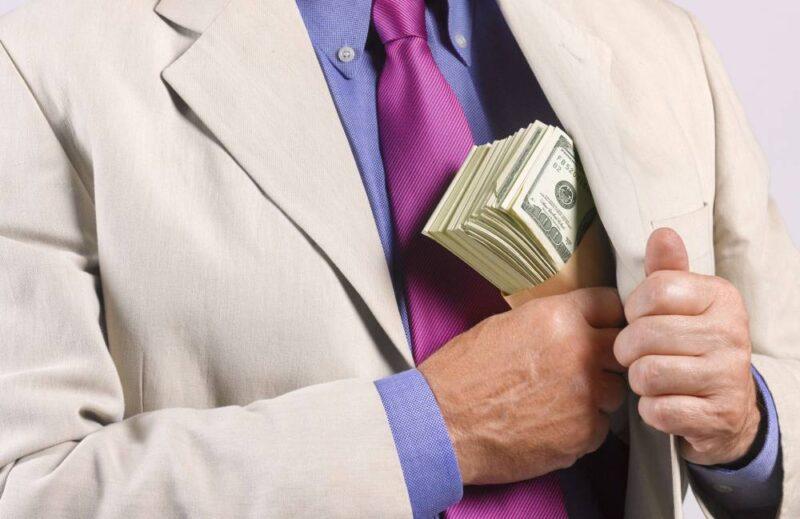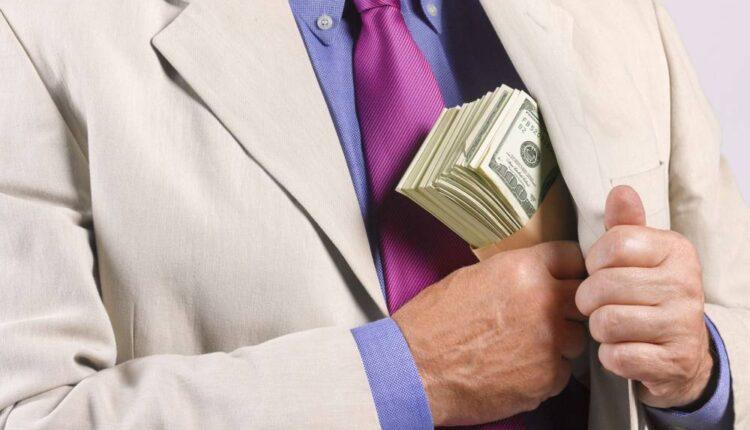
- Americans started receiving their one-time stimulus payments, a financial-relief measure to counter the economic effects of COVID-19.
- Scammers are using the opportunity to steal from unwary consumers, federal officials warn.
- Here are some tips and ways to protect yourself.
Peter Dazeley
Scam artists have their eyes on the stimulus checks Americans started receiving this week to help weather the economic contagion of the coronavirus.
The federal government deposited the first batch of relief money into some Americans' bank accounts over the weekend, according to the IRS.
Millions more will get their one-time payments in coming weeks, by direct deposit or mail.
The $2 trillion coronavirus relief law (the CARES Act) signed March 27 provides up to $1,200 per individual or $2,400 per married couple and an additional $500 per eligible child.
Fraudsters are trying to cash in on that money, according to federal officials.
VIDEO1:2801:28Identity thieves want your tax refund. Some would kill for itAmerican Greed
Con artists may try to ensnare the unwary with fake-check scams, phone calls and e-mail phishing scams that aim to steal consumers' personal information, and other nefarious activities, officials warned.
"History has shown that criminals take every opportunity to perpetrate a fraud on unsuspecting victims, especially when a group of people is vulnerable or in a state of need," said Don Fort, the head of criminal investigations at the IRS.
"While you are waiting to hear about your economic impact payment, criminals are working hard to trick you into getting their hands on it," he said.
Here are some things to know to protect yourself, according to the IRS and Federal Trade Commission.
No action needed
The vast majority of people don't need to take any action to get their payments. The IRS will calculate and automatically send the economic impact payment to eligible taxpayers who filed tax returns for either 2019 or 2018, most seniors and retirees.
Who's eligible?
Single filers with income exceeding $99,000 and $198,000 for joint filers with no children are not eligible for the payments.
Where to get info?
For trusted information and updates about IRS payments — including eligibility, how to sign up for direct deposit, or where to file a short tax form — start with the IRS website devoted to economic relief payments.
While you are waiting to hear about your economic impact payment, criminals are working hard to trick you into getting their hands on it.Don Forthead of criminal investigations at the IRS
Checks aren't in the mail yet
Paper checks, for those without direct deposit, will start arriving in May at the earliest. If you get a relief check before then, or you get a check when you're expecting a direct deposit, it's a scam.
Overpayments
The IRS won't send you an overpayment and make you send the money back in cash, gift cards or through a money transfer. Scammers may send an official-looking check for more than what you were expecting — $3,000, for example — and then call. They'll tell you to keep your $1,200 payment and return the rest. The fake-check scam will leave you owing money to the bank.
Contact
The IRS won't contact you — whether by phone call, text or email — to collect personal or bank account information. Hang up on calls related to stimulus payments, don't click on any hyperlinks or attachments in e-mails or texts related to the checks. The same goes for websites and social media.
Some scammers are sending official-looking messages, including postcards with a password to be used online to "access" or "verify" your payment or direct deposit information.
Early access
No one has early access to this money. Anyone that claims to is a scammer.
VIDEO2:3102:31Ex-con man says these physical forgeries are making a comebackInvest in You: Ready. Set. Grow.
Source: cnbc.com

